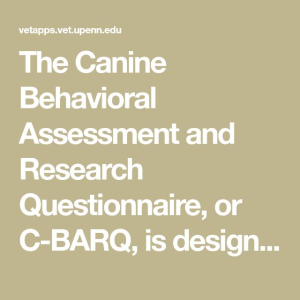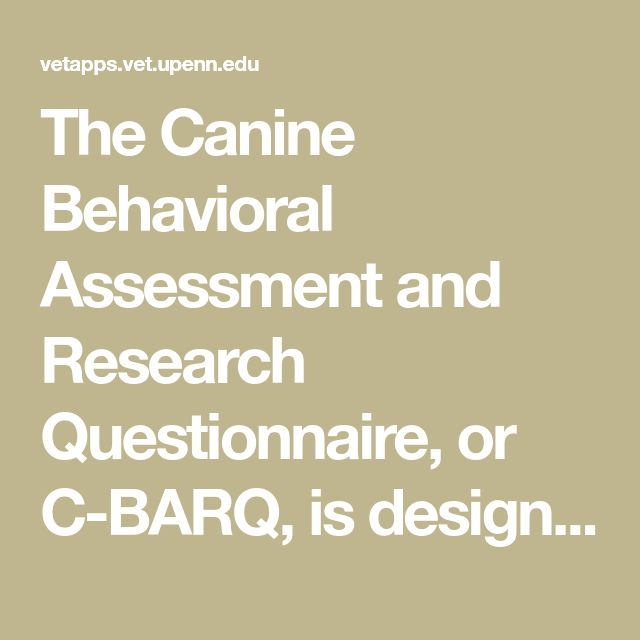Katie Kitamura, a celebrated novelist, will soon grace Harvard’s Mahindra Humanities Center for a captivating discussion about her latest work, “Audition.” This novel explores the complex interplay of performance art in literature, revealing the unsettling dimensions of middle age and domestic life in a New York City apartment. As a master of horror literature, Kitamura invites readers into a narrative rife with uncertainty, where the notion of identity and familial ties becomes perilously thin. Her profound engagement with pandemic novel themes serves as a backdrop, seamlessly intertwining the anxieties of contemporary life with the uncanny. With accolades like the 2025 Guggenheim Fellowship to her name, Kitamura continues to make her mark in the literary world, captivating audiences with her insightful reflections on existence and perception.
In the realm of contemporary fiction, Katie Kitamura stands out for her innovative approach to storytelling. Her novel, “Audition,” exemplifies themes prevalent in horror literature, intricately weaving elements of performance and societal expectations into its narrative fabric. As discussions on family dynamics and the trials of midlife unfold, the book resonates with pandemic novel themes that echo our shared global experiences. Kitamura’s adept exploration of identity and isolation shines a light on the psychological struggles faced by individuals in confined spaces. Through her work, she not only captivates readers but also sparks conversations on the broader implications of her narratives.
Exploring the Themes of Horror in Katie Kitamura’s ‘Audition’
Katie Kitamura’s latest novel, “Audition,” delves into the eerie aspects of familial relationships and urban life, drawing from the realm of horror literature. The characters, primarily trapped within a New York City apartment, navigate uncertainties that reflect existential dread—a hallmark of the horror genre. This connection underscores the latent fear of the familiar transforming into the unknown, where performance art becomes a metaphor for hidden truths. Kitamura crafts a narrative that is both haunting and relatable, tapping into the psychological terrors that often accompany mid-life transitions.
The intricate layers of horror in “Audition” resonate with the unsettling experiences of the characters as they grapple with their identities and relationships. By conversing with the conventions of horror, Kitamura not only pays homage to classics like “Rosemary’s Baby” but also reinvents this genre by exploring contemporary themes of motherhood and intimacy. This blend of reality with the uncanny encapsulates how the performance of self can lead to revelations that frighten and intrigue, illustrating Kitamura’s deft understanding of horror as a versatile narrative tool.
Pandemic Influences in ‘Audition’ and Contemporary Literature
Though “Audition” does not explicitly mention the pandemic, its atmosphere reflects the disconnection and confinement felt during such unprecedented times. Kitamura’s narrative subtly weaves elements reminiscent of pandemic themes, as characters are forced into close quarters, leading to a rising tension and the revelation of hidden aspects of their personalities. This atmospheric quality is a testament to the influence that the global crisis has had on contemporary literature, encouraging authors to explore concepts of isolation and uncertainty within their works.
This exploration of familial dynamics in the face of confinement mirrors the realities many faced during lockdowns, illustrating how life in a small space can both bind and break relationships. As Kitamura herself noted, the socio-political climate inevitably seeps into a writer’s work, allowing for a complex layering of themes that resonate with readers today. In this way, “Audition” stands as a reflective piece, echoing the shared experiences of anxiety and disruption that marked the pandemic era, yet capturing the essence of these challenges through a compelling narrative lens.
The Intersection of Performance Art and Literature in Kitamura’s Work
At the core of “Audition” lies the theme of performance, illuminating how identities are often crafted and presented. Kitamura explores the notion that our interactions with others can resemble a stage, where individuals don roles depending on societal expectations. This concept is particularly pertinent in today’s world, where the boundaries between authenticity and performance can blur, leading to a deeper understanding of self. As the protagonist navigates her relationships, the performances unfold, revealing the gaps between perception and reality—a rich subject for both literature and performance art.
Additionally, Kitamura’s engagement with performance art not only enriches her storytelling but also challenges the reader to consider their own performances in daily life. The characters’ struggles and experiences echo the complexities of existing in a society where adaptability and role-play are essential. This duality between the seen and the hidden, the actor and the audience, creates a profound narrative that encourages introspection. In this sense, Kitamura’s work becomes a platform for examining how performance shapes human connection and misunderstanding in a world eager for authenticity.
Katie Kitamura’s Contributions to Modern Literature
Katie Kitamura has firmly established herself as a pivotal voice in modern literature, with “Audition” showcasing her unique style and thematic concerns. Her ability to weave intricate narratives that engage with pressing social issues makes her work resonate widely. Kitamura’s exploration of horror as a lens to scrutinize human relationships elevates her storytelling, offering layers of psychological depth that encourage readers to confront their own fears and insecurities. By capturing the haunting nuances of contemporary life, she invites audiences into a realm where literature becomes a reflection of society.
Through her literary contributions, Kitamura continues to challenge and expand the boundaries of genre. By incorporating elements from performance and horror literature, she not only captivates her readers but also prompts critical conversations about identity, privacy, and the human condition. As a Guggenheim Fellow, her influence in literary circles is growing, addressing themes of complexity and authenticity in contemporary narratives. Her work serves as a reminder of the ongoing relevance of fiction in understanding and engaging with the world around us.
The Role of Privacy in Relationships: Insights from ‘Audition’
In both “Audition” and her earlier works, Katie Kitamura emphasizes the significance of privacy in relationships—a theme that resonates deeply in today’s context of oversharing and digital exposure. Through her characters, she articulates the notion that maintaining a personal space is essential for fostering healthy connections. This exploration into the complexities of knowing versus being known raises important questions about the extent to which we reveal ourselves to others. As Kitamura suggests, full transparency may not always be the ideal; rather, there is beauty and safety in the unspoken and unexplored facets of identity.
Kitamura’s perspective on privacy also extends beyond personal relationships, reflecting on the broader societal implications of how much we choose to share. In a world where social media curates our images and performances, her narrative invites readers to consider how much of their true selves remain hidden. The struggle for privacy amidst familial expectations and societal pressure becomes a central theme, paralleling the insecurities and anxieties many face in their lives. This thoughtful discourse on privacy enriches Kitamura’s narrative, making it a pivotal part of her exploration of relationships and identity.
Literary Reflections on the Human Condition
Katie Kitamura’s novels, including “Audition,” provoke critical reflections on the human condition, intertwining personal experiences with broader societal themes. As she recounts the complexities of human relationships through rich narratives, Kitamura constructs a lens through which readers may examine their own lives and fears. The depth of her characters reveals the uncomfortable truths of existence, particularly during periods of uncertainty and change, mirroring the emotional landscapes many navigate in the contemporary world.
Moreover, Kitamura’s literature serves as a vehicle for understanding the often unnoticed impact of external factors on personal development. By examining emotions and behaviors against a backdrop of social expectations and crises—similar to those experienced during the pandemic—she highlights how interdependent our experiences truly are. In this way, her writing transcends individual stories, tapping into universal truths that resonate deeply, reminding readers of the complex interplay between private struggles and collective challenges.
Impacts of Teaching on Kitamura’s Writing Journey
As a professor of creative writing at New York University, Katie Kitamura not only educates a new generation of writers but also engages in self-reflection through her teaching experiences. This dual role enhances her literary practice, allowing her to explore and articulate ideas about language, expression, and the significance of storytelling. The dynamic exchange with students fosters inspiration and prompts Kitamura to reconsider her own narratives and the impact of her work.
Her commitment to teaching underlines the importance of storytelling in understanding complex societal dynamics and navigating personal challenges. Kitamura’s insights deepen her understanding of narrative and performance, enriching her novels with multifaceted layers that resonate with her audience. In an era where the relevance of literature is increasingly challenged, Kitamura argues for the profound importance of fiction as a medium that illuminates truth and cultivates empathy—an endeavor she actively fosters among her students.
Audition’s Connection to Harvard Humanities Events
The Mahindra Humanities Center at Harvard serves as a significant platform for literary conversations surrounding works like Katie Kitamura’s “Audition.” By hosting discussions and events featuring contemporary authors, the center not only enriches the academic landscape but also highlights the importance of literature in addressing critical themes such as identity and the human experience. These events facilitate a deeper engagement with literature, allowing audiences to explore the nuances of storytelling and its relevance in our current context.
Kitamura’s upcoming visit to Harvard is an opportunity for students and faculty to delve into the layers of her work, examining how her narratives encompass broader cultural concerns while maintaining a personal touch. This synergy between literature and the humanities exemplifies the power of storytelling as a means for connection and understanding, fostering intellectual discourse that reflects the dynamic interplay between art and life. Engaging with such literary figures enriches the academic experience, reinforcing the notion that literature remains vital for comprehending complex social realities.
The Importance of Language and Precision in Contemporary Writing
Language is a powerful tool, and Katie Kitamura emphasizes its role in shaping narratives that can either conform to or challenge societal norms. In her works, she demonstrates how language—like performance—can reflect and influence our understanding of reality. During her teaching, she instills in her students the significance of precision and clarity, urging them to utilize language thoughtfully to impact their narratives and the world around them. This level of intentionality in writing is crucial in an age where miscommunication and oversimplification can lead to misunderstandings.
Furthermore, Kitamura’s insistence on the necessity of carefully crafted language aligns with her belief in fiction’s power to enact change. By articulating thoughts and experiences with nuance and depth, writers can invite readers to perceive their realities differently. In this regard, Kitamura’s literary voice embodies the intersection of language, literature, and social critique, advocating for writing that serves not just to entertain, but to provoke thought and inspire action—a mission that resonates deeply in the current literary landscape.
Frequently Asked Questions
What are the themes explored in Katie Kitamura’s novel ‘Audition’?
In ‘Audition’, Katie Kitamura delves into themes of performance art in literature, exploring the complexities of identity and relationships within the unsettling backdrop of a family’s New York City apartment. The novel engages with horror literature by reflecting the uncanny and disquieting experiences of its central character, examining the masks people wear in their daily lives.
How does Katie Kitamura incorporate pandemic themes into ‘Audition’?
Though ‘Audition’ does not explicitly feature pandemic elements like masks or viruses, Katie Kitamura has acknowledged that it was written during the pandemic and reflects themes of confinement and familial tension, characteristic of a pandemic novel. The exploration of limited personal space and growing strains among family members parallels the emotional landscape many experienced during lockdown.
What influences did Katie Kitamura draw from horror literature while writing ‘Audition’?
While writing ‘Audition’, Katie Kitamura drew inspiration from classic horror literature, particularly Ira Levin’s ‘Rosemary’s Baby’, which explores troubled motherhood and the eerie dynamics within confined familial spaces. She aims to evoke horror-adjacent feelings, where familiar relationships morph into unsettling experiences, emphasizing the thin line between knowing someone and perceiving their hidden aspects.
How does performance art manifest in Katie Kitamura’s writing?
In ‘Audition’ and her prior works, Katie Kitamura integrates performance art themes by examining the roles individuals play in their interpersonal relationships. Her characters navigate their identities through performance, revealing the malleability of self that defines human interactions, thus highlighting the often unseen facets of familiar bonds.
What can readers expect from Katie Kitamura’s event at Harvard?
At the Mahindra Humanities Center event at Harvard, Katie Kitamura will engage in conversation with Claire Messud, discussing her latest novel ‘Audition’, her process of writing about performance and privacy, and how these themes intersect with contemporary issues, including her experiences during the pandemic.
Has Katie Kitamura received any notable accolades for her literary work?
Yes, Katie Kitamura was recently named a 2025 Guggenheim Fellow in fiction, recognizing her contributions to literature. Such accolades highlight her status as a significant voice in contemporary literature, particularly with the thought-provoking themes presented in ‘Audition’ and her previous novels.
| Key Topics | Details |
|---|---|
| Katie Kitamura’s Visit to Harvard | Kitamura will speak at the Mahindra Humanities Center about her latest novel, ‘Audition’, in conversation with Claire Messud. |
| New Novel: ‘Audition’ | This novel explores themes of uncertainty and horror in middle age, focusing on a family in a New York City apartment. |
| Influence of Horror Genre | ‘Audition’ draws on horror influences like ‘Rosemary’s Baby’, examining fractured relationships and identities. |
| Pandemic Reflection | The setting during the pandemic inadvertently shaped the novel’s themes of confinement and familial tension. |
| Theme of Performance | Kitamura addresses the malleability of identity through the character’s experiences as an actor and family dynamics. |
| Power of Fiction | Kitamura advocates for fiction as a critical tool for social connection and imagination, especially in challenging times. |
Summary
Katie Kitamura’s latest work, ‘Audition’, showcases her significant grasp of the intersections between identity, performance, and horror. As she prepares for her discussion at Harvard, it’s clear that the themes she explores resonate deeply with contemporary societal issues, particularly those arising from personal and communal introspection. Kitamura’s ability to weave complex narratives while reflecting on the time we’re living in makes her a compelling voice in today’s literary landscape.









